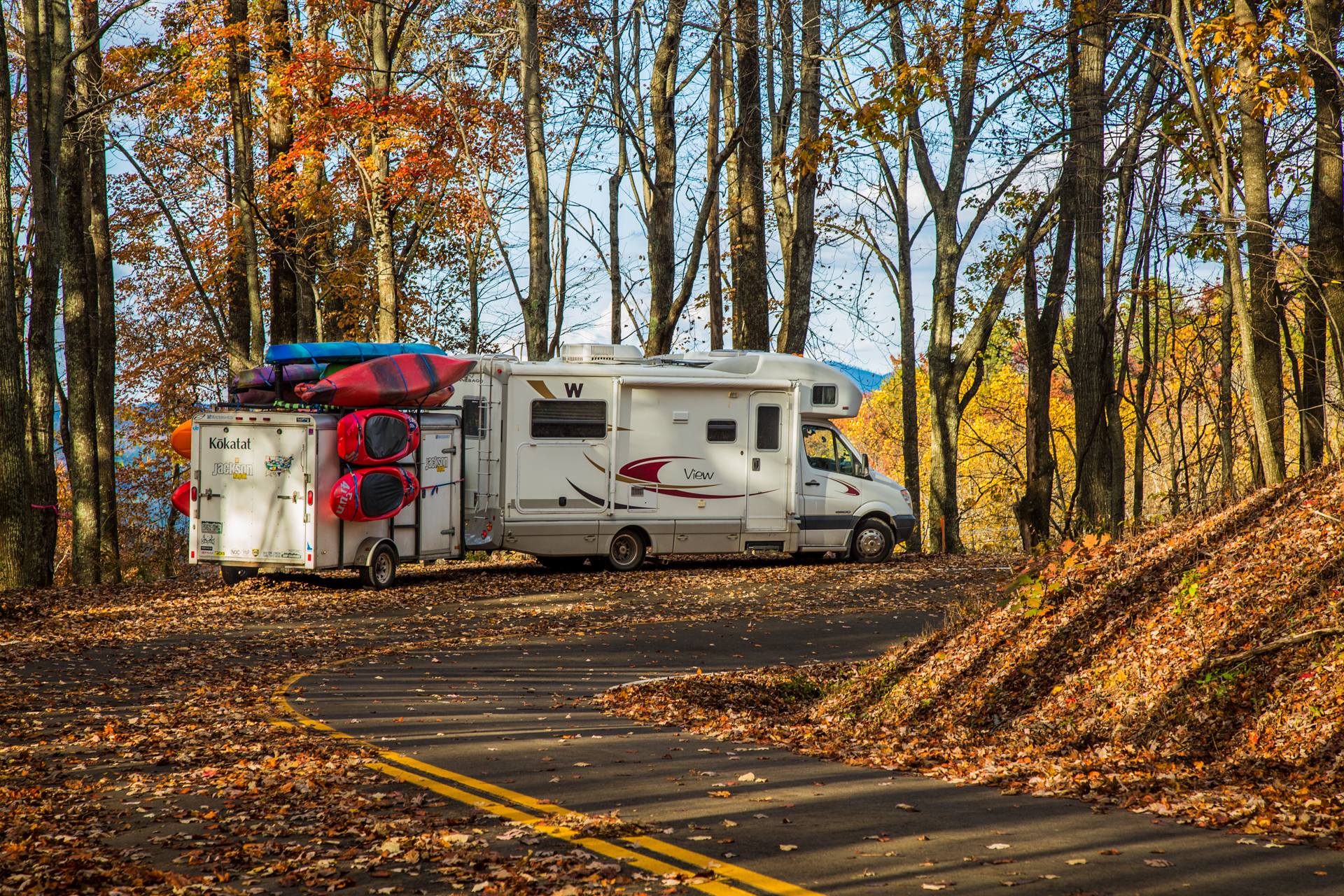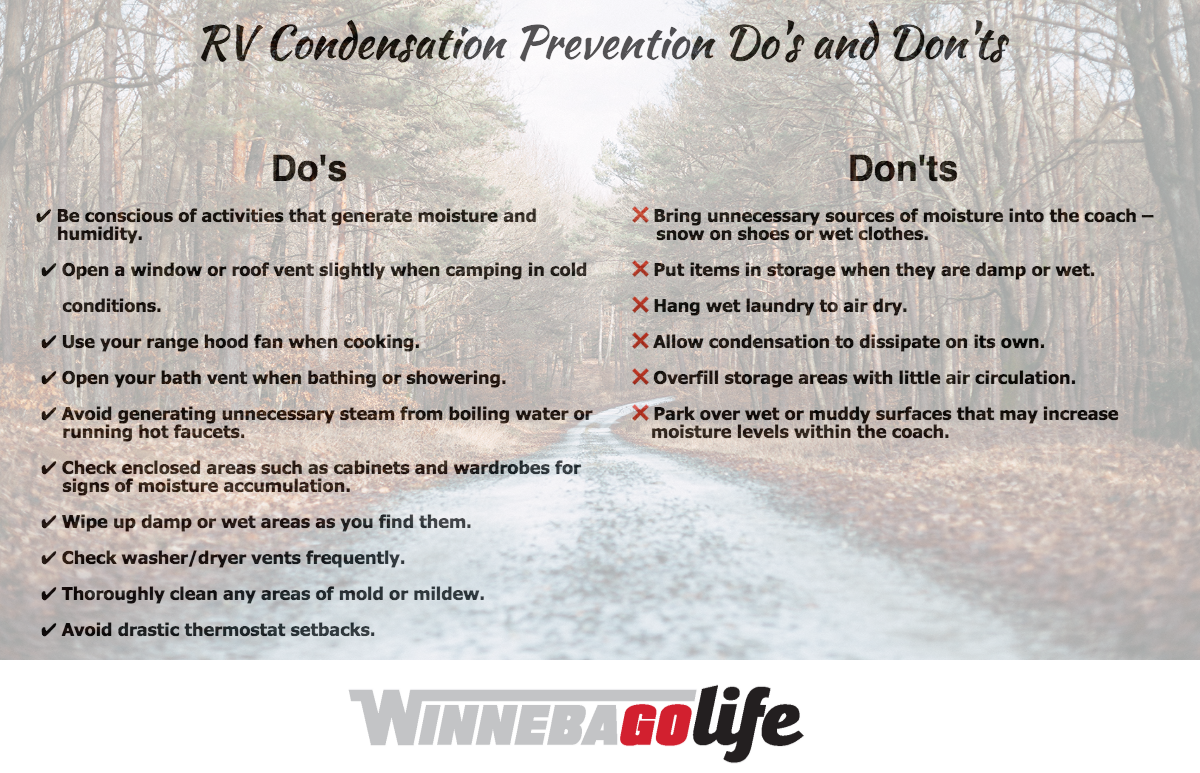
Condensation Prevention in your RV
With the "dog days of summer" behind us, RVers thinking about extending their trips into the fall will harvest the many benefits of the cooler season. Fewer bugs, discounted RV parking and observing the breath-taking scenery of the changing foliage are only a few of the advantages of extending your RV travels. However, with the new season different challenges in RV maintenance will arise.

For those of you who need a reminder of what condensation is, let's revisit your middle school earth science class. The water cycle is the process in which water circulates between the earth's oceans, land and atmosphere involving precipitation, evaporation and condensation. Condensation is the process in which water vapor (water in its gaseous form) changes back into its liquid form. Although condensation is crucial to the formation of clouds, it can prove to be problematic when it occurs inside your RV!
Many of our daily activities naturally generate water vapor causing the moisture to occur. One source suggests that breathing and perspiration alone can generate as much as three pounds of vapor per person per day! Add cooking, bathing, washing dishes and laundry, and it is easy to see that a lot of water vapor or humidity can be introduced into a coach in a relatively short amount of time. Imagine the effects of this moisture accumulation over several days if not monitored. Controlling and monitoring relative humidity in your RV is on the most important steps in minimizing moisture related damage. Ideally, the relative humidity in your coach should be at 60% or less. Hygrometers are a great tool to measure temperature and relative humidity and are available at electronics or building supply stores for around $30.
Proper ventilation of your coach is the most effective way of condensation prevention. Modern construction methods, with improved insulation and weather stripping, create a living space that can be virtually airtight when closed up, allowing little or no moisture laden air to escape. At the same time, metal structure within the sidewalls and around openings conducts the cold into the vehicle where it condenses the moisture in the air. Removing this moist air is the best way to prevent this condensation from forming. Effects of condensation within a motorhome can range from foggy windows to water literally running down the walls. Items stored in enclosed spaces such as cabinets and drawers can actually become damp and musty.
If left unattended, mold and mildew can form. Small amounts of mold should be cleaned as soon as it appears with a detergent/soapy solution or household cleaner. Ensure the cleaned area is thoroughly dry and dispose of any sponges or rags used to clean mold. In more severe cases, you may develop dry rot or structural damage to the wooden components in the coach if the moisture is not contained. This type of damage often goes unattended, as it may not be readily visible and is usually quite expensive to repair. In order to help guard against the effects of condensation in your motorhome we have complied the following list of "do's" and "don'ts."

In addition to the suggestions listed, many people will utilize a small fan to increase circulation within the living quarters. There are also small mechanical dehumidifiers that do an excellent job of deterring the buildup of condensation. Whatever steps you take to minimize condensation and its effects in your motorhome, it will help to prevent costly damage and make your time spent camping during colder conditions more enjoyable!
How do you keep condensation in your RV at bay? Comment below with your suggestions!
Comments
Comments on this post are moderated, so they will not appear instantly. All relevant questions and helpful notes are welcome! If you have a service inquiry or question related to your RV, please reach out to the customer care team directly using the phone numbers or contact form on this page .